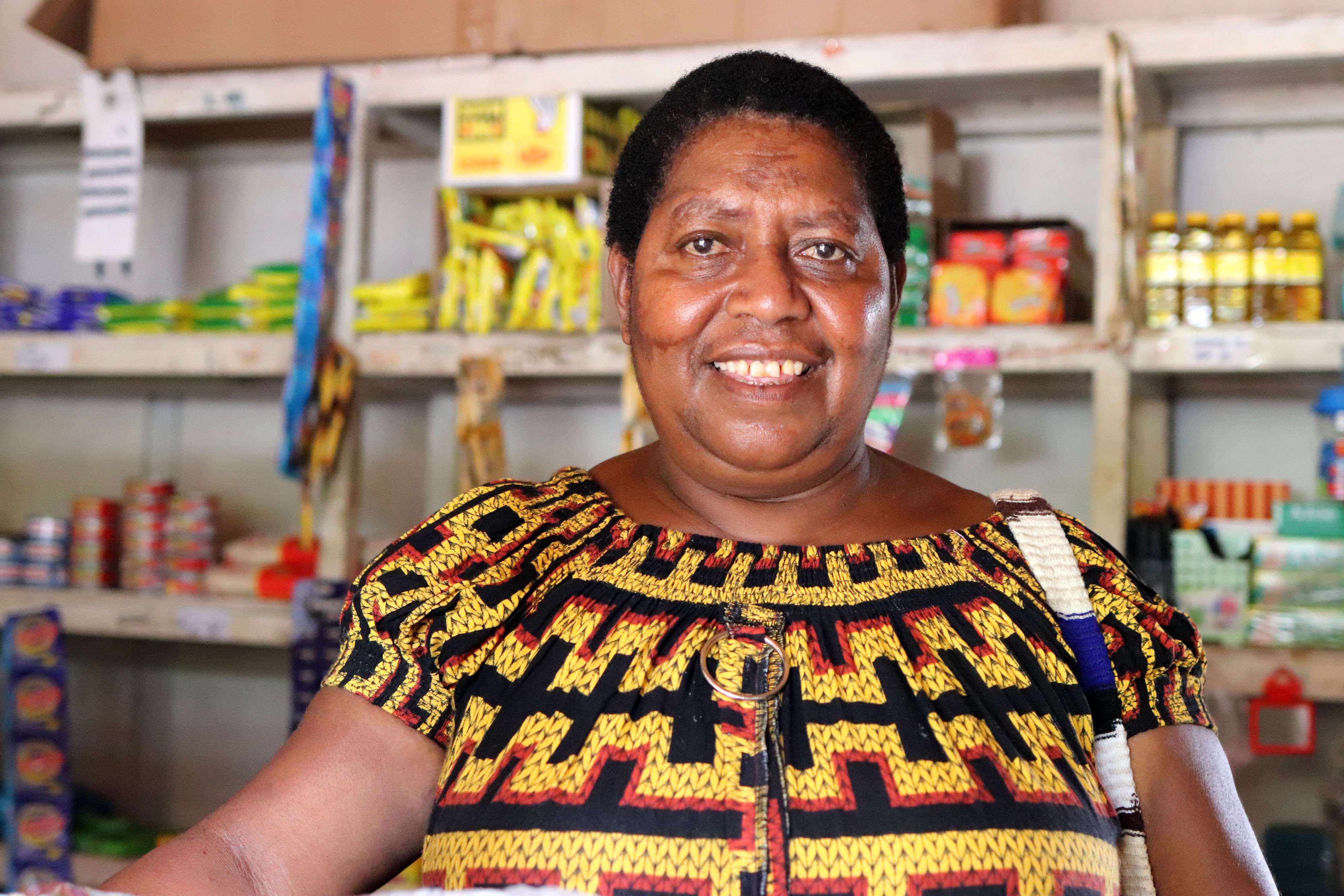
Kapily Puluku was in fifth grade when a man arrived at her father’s house with 50 pigs and other traditional gifts to seek her hand in marriage. And just like that, Kapily’s dream of pursuing further studies reached a dead end as she left school, got married, settled in Lae, Morobe Province of Papua New Guinea, and raised six children. Kapily tried venturing into selling general merchandise at roadside markets, but options were limited for a woman who could not read and write due to having left school so early. She also could not open bank accounts to deposit her earnings from the informal sector, so she resorted to hiding all her savings in her backyard garden.
Papua New Guinea has the highest formal inclusion gender gap in the South Pacific region and according to the United Nations Capital Development Fund (2020), women are 29 percent less likely than men to have access to formal financial services like banking, savings and loan schemes. This limitation makes it extremely difficult for them to grow their small-scale businesses and improve their livelihood prospects.
As a result of these conditions, Kapily recalled, “My dream from when I was growing up seemed all but gone.” But then, she had the opportunity to attend financial literacy training offered by the USAID Papua New Guinea Lukautim Graun Program, implemented by DT Global. The training provided participants with the opportunity to open saving accounts with MiBank, a nationwide micro-bank. Additionally, graduates became eligible to apply for access to MiBank’s lending options for growing their businesses and improving their livelihood activities.
Through this training, Kapily improved her understanding of how to effectively save and budget her money. This helped give Kapily the tools and confidence she needed to pursue business opportunities that she believed were not possible in the past. Determined to pursue her dream, Kapily dug up her savings hidden in the backyard and ventured into a trade store business.
Only a few months after starting out with just a handful of scones to sell each morning, Kapily has now expanded her store inventory to include a wider variety of household goods like tinned food, cooking oil, and soap. Kapily says she receives more income now to support her family with necessities like food, clothes, and medicine because of her new trade store business. "This is what I have always wanted to do for a long time – run my own business," says Kapily. "Thank you, USAID, for the training that has helped me to achieve my dream.”
She hopes to expand her business with other merchandise and is already actively working towards this goal. She recently opened a savings account with MiBank and made an initial deposit of 150 Papua New Guinean Kina (about US$43). Moving forward, Kapily aims to continue saving with MiBank until she qualifies to apply for a loan to expand her business.